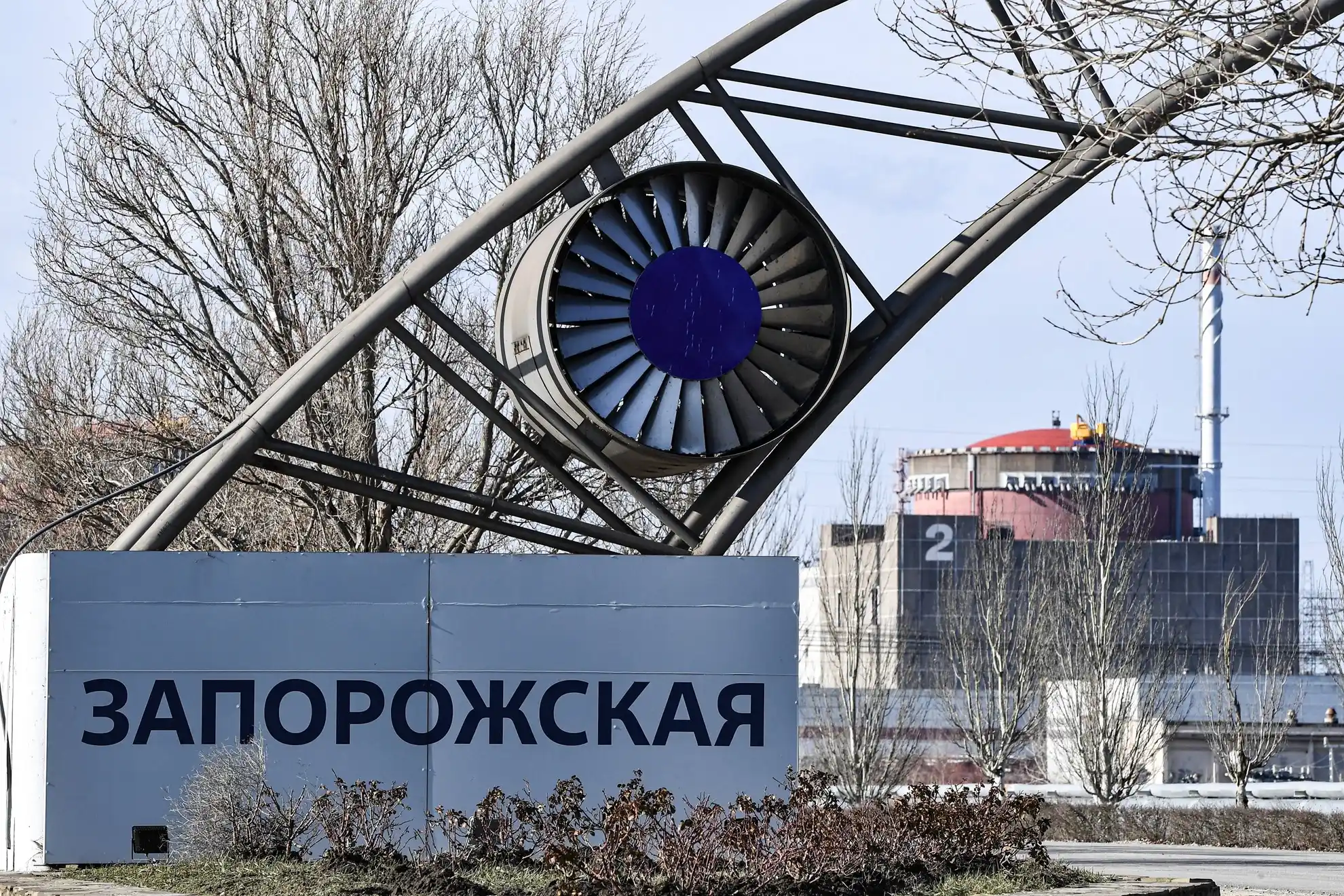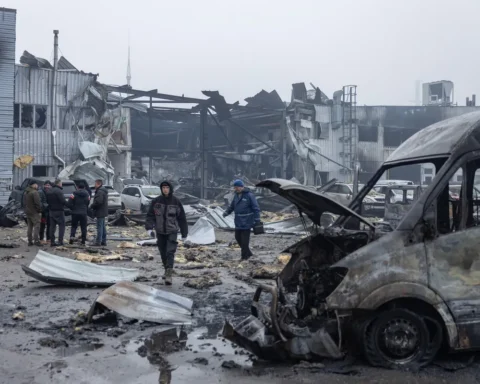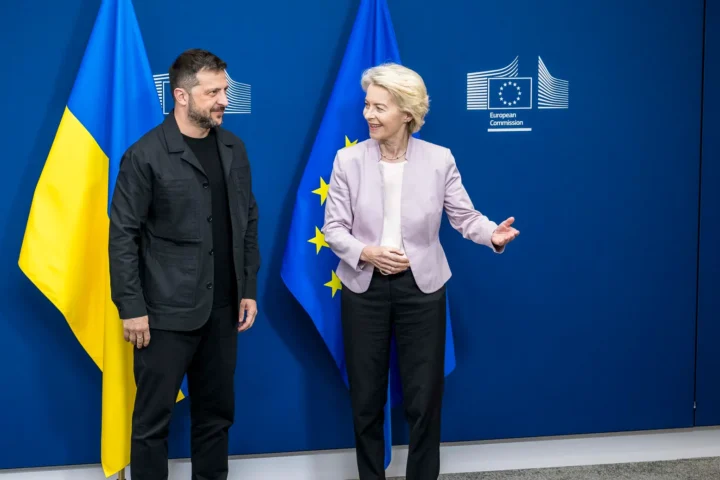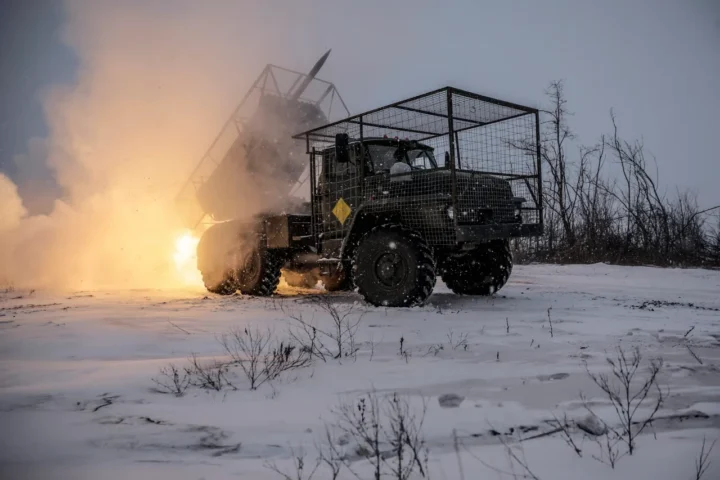The Trump administration is seeking to renegotiate the terms of the agreement between the United States and Ukraine regarding access to critical mineral resources and energy assets. According to Ukrainian officials, Washington aims to expand the scope of the deal to include not only mineral extraction but also potential U.S. involvement in the management of Ukrainian facilities, including nuclear power plants.
Strategic Interests Beyond Minerals
According to two senior Ukrainian officials, Washington is pressing Kyiv to agree to more detailed provisions regarding the ownership and management of a joint investment fund. In addition, U.S. negotiators are reportedly advocating for broader rights that may extend to American involvement in operating Ukrainian nuclear power plants.
Of particular interest is the Zaporozhye Nuclear Power Plant—Europe’s largest—located 650km southeast of Kyiv on the Dnepr River. The plant has been under Russian military occupation since March 2022. Ukrainian President Volodymyr Zelenskyy told the Financial Times during a press briefing that he discussed only this facility with former U.S. President Donald Trump. Currently, the plant’s six reactors are in “cold shutdown” mode.
The Trump administration maintains that substantial American investment in Ukraine could serve as a deterrent against future Russian aggression following any ceasefire agreement. As reported by the Financial Times, Washington believes economic entanglement may provide de facto security guarantees.
Concerns Over Pressure and Control
Ukrainian officials have expressed concern over the potential pressure to accept less favorable terms. Their unease grew following the temporary suspension of U.S. military aid and intelligence cooperation with Kyiv earlier this month.
A recent phone call between Trump and Zelenskyy reportedly covered Ukraine’s energy infrastructure, including its nuclear power system. U.S. Secretary of State Marco Rubio and National Security Adviser Mike Waltz said Trump offered American expertise in managing energy utilities and suggested U.S. ownership could “offer the best protection” for Ukraine’s energy facilities.
Background of the Minerals Deal
In February, Ukraine and the U.S. reached a preliminary agreement focused on the joint development of Ukraine’s vast mineral reserves, including oil and gas. The agreement, dated February 25 and first reported by the Financial Times, was a scaled-down version of an earlier U.S. proposal.
Notably, the initial mention of a potential $500 billion in revenues from mineral extraction was removed. Additionally, projects already contributing to Ukraine’s state budget were excluded. However, the agreement did include a clause stating that the U.S. “supports Ukraine’s efforts to obtain security guarantees needed to establish lasting peace.”
Despite Kyiv’s satisfaction with the document, the deal remains unsigned as both sides continue to negotiate broader economic and security-related concerns. “We are ready to sign it,” a senior Ukrainian official close to Zelenskyy said. “It would be strange to ignore it.”
Negotiation Dynamics and Strategic Shifts
Ukrainian negotiators confirmed that the Trump administration had not yet provided revised terms, though discussions point toward a more comprehensive agreement.
A White House National Security Council spokesperson noted that “an economic partnership related to critical minerals, energy and economic growth for both nations remains a discussion,” adding that the focus has shifted toward “a broad ceasefire and path to lasting peace.”
Ukraine had preferred to finalize the minerals deal before expanding discussions to other sectors of American investment. However, U.S. efforts appear to be integrating economic strategy with long-term security objectives.
Domestic Backlash and Sovereignty Concerns
The proposed expansion of U.S. involvement has triggered alarm among some Ukrainian lawmakers. Inna Sovsun, a member of Ukraine’s opposition, voiced her concern on X (formerly Twitter):
“Since when does surrendering a strategic sector to a foreign country equal security? Sounds more like a takeover than protection.”
As negotiations unfold amid an ongoing war and geopolitical strain, Ukraine remains caught between the need for Western investment and the imperative to protect its sovereignty. One thing is certain: the country’s vast natural resources remain a focal point in the larger struggle for influence in Eastern Europe.
This article was prepared based on materials published by The Financial Times. The author does not claim authorship of the original text but presents their interpretation of the content for informational purposes.
The original article can be found at the following link: The Financial Times.
All rights to the original text belong to The Financial Times.





















